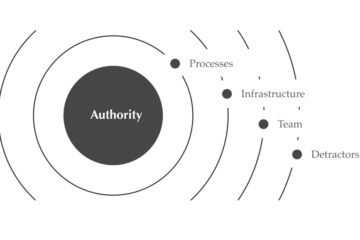The Erosion of Neoliberal Ideas in the West
“By some it is said that only the strong arm of government can protect men against the brutal oppression of their machines; by others that only the power of government can realize the beneficent promise of the machines. But all agree that in the recent progress of technology there is some kind of deep necessity which compels mankind to magnify the sovereignty of officials and to intensify their intervention in affairs. The modern state holds its sovereign power by grace of the gods of the machine.” – Lippman, 1938
“Liberalism” takes many forms, but common between all of them is the goal of undermining authoritarian forces for the sake of empowering the individual Older forms of Liberalism sought to free the individual from officially sanctioned privilege of the ruling classes who feared that placing power in the hands of the masses would lead to chaos. Liberals in the United States and France responded with a host of works that lead to newer systems of capitalism to replace the mercantilism before it and the democratic state to replace multi-class systems.
By the early 19th century, the scope of power for these democratic states had grown as a response to warfare, economic hardship, and new ideas of how wealth redistribution may benefit the whole. Neoliberalists like Lippman and Hayek argued that class-based authoritarianism which stifled the individual in the previous era had been replaced by a tyranny of the majority.
In every case, the antipathy toward liberalism comes from two fears. The first, traditionally conservative fear, held that that the masses will be unable to act on their own behalf. Driven by ignorance or immorality, the masses would devolve into chaos. These fears are beginning to manifest again in the west as populist political movements, scientific discoveries, and other forces undermine the confidence elites have distributing power to individuals.
The second fear, traditionally captured by Marxist commentators, is that neoliberal ideals have not – and can never – live up to their idealistic visions of distributed power. Truly liberal systems lead to capital accumulation, reinforcing, and often exacerbating, the power of traditional upper classes.These systems may not use legal means to place constraints on individuals, but the unequal distribution of wealth limits individual agency just the same.
As a third argument, states that even if even distributions of capital (and, thus, power) did occur, the pursuit of free-market “Neoliberalism” tends not to be liberal at all! Citing cases like Chile under Pinochet, critics argue that the quest for neoliberal capitalism tends to be just as brutal and repressive as any other ideological endeavor.
A fourth, and equally dire view is held by philosophers such as Jean Boudrillard, that the shift in society’s focus toward the consumer object as a proxy for agency has allowed society as a whole to slip into a rather empty existence that – in an evolution of Marx’s critique – creates inequality through the symbolic qualities of consumption.
How has the influence of these arguments affected the state of Design in the West? To what extent has post-modernism and other forces emergent in the late 20th century started to affect design in the 21st?
These topics will be explored in this essay…

